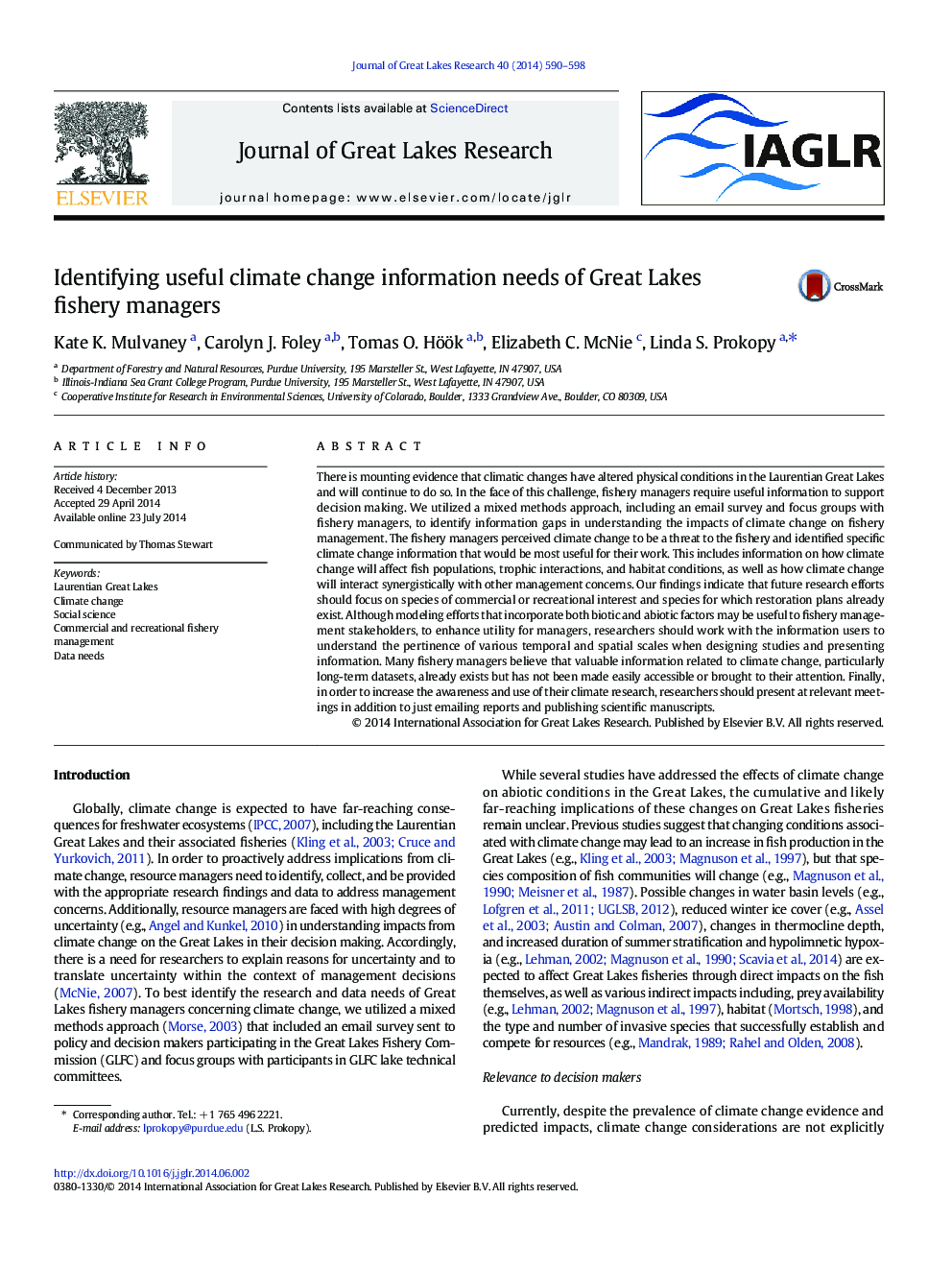| Article ID | Journal | Published Year | Pages | File Type |
|---|---|---|---|---|
| 6305282 | Journal of Great Lakes Research | 2014 | 9 Pages |
Abstract
There is mounting evidence that climatic changes have altered physical conditions in the Laurentian Great Lakes and will continue to do so. In the face of this challenge, fishery managers require useful information to support decision making. We utilized a mixed methods approach, including an email survey and focus groups with fishery managers, to identify information gaps in understanding the impacts of climate change on fishery management. The fishery managers perceived climate change to be a threat to the fishery and identified specific climate change information that would be most useful for their work. This includes information on how climate change will affect fish populations, trophic interactions, and habitat conditions, as well as how climate change will interact synergistically with other management concerns. Our findings indicate that future research efforts should focus on species of commercial or recreational interest and species for which restoration plans already exist. Although modeling efforts that incorporate both biotic and abiotic factors may be useful to fishery management stakeholders, to enhance utility for managers, researchers should work with the information users to understand the pertinence of various temporal and spatial scales when designing studies and presenting information. Many fishery managers believe that valuable information related to climate change, particularly long-term datasets, already exists but has not been made easily accessible or brought to their attention. Finally, in order to increase the awareness and use of their climate research, researchers should present at relevant meetings in addition to just emailing reports and publishing scientific manuscripts.
Related Topics
Physical Sciences and Engineering
Earth and Planetary Sciences
Earth and Planetary Sciences (General)
Authors
Kate K. Mulvaney, Carolyn J. Foley, Tomas O. Höök, Elizabeth C. McNie, Linda S. Prokopy,
